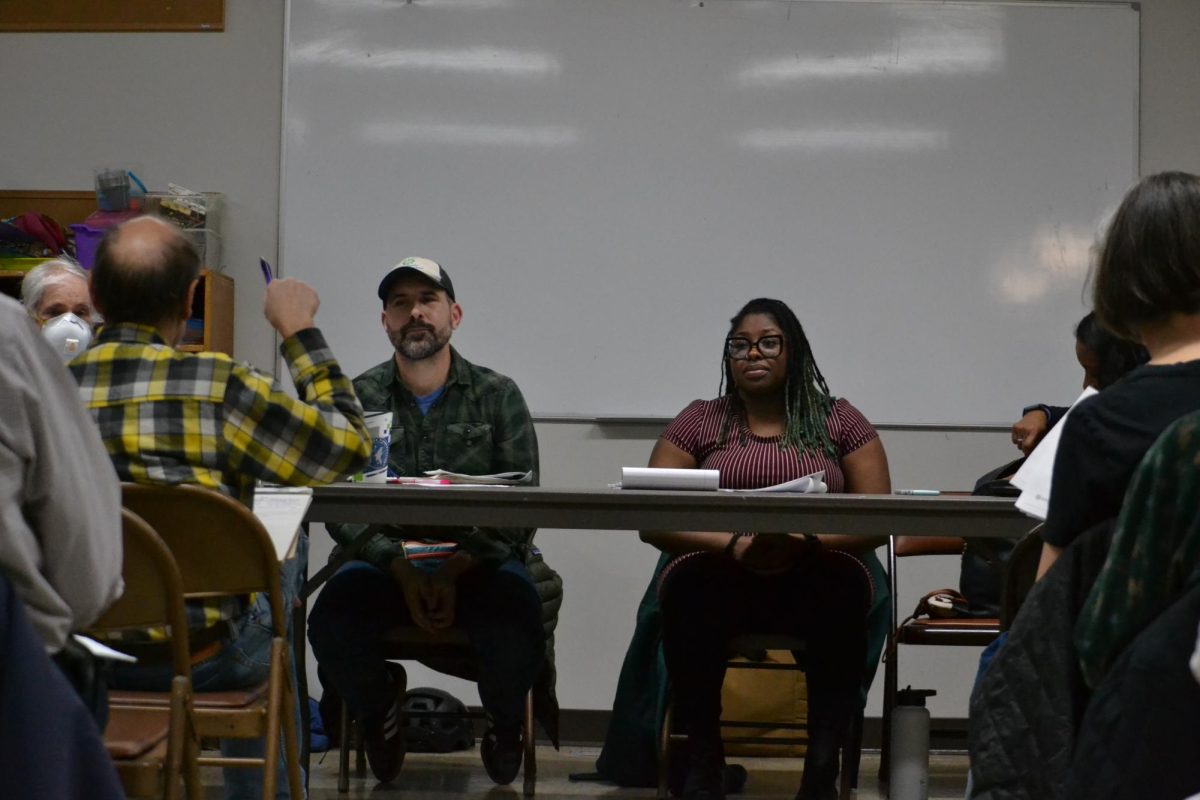Minneapolis City Council approved a $210,000 buyback contract for the Minneapolis Safety Initiative on Jan. 27, allowing organizations to hire off-duty officers for safety measures, such as extra patrolling, in their area.
Some council members said they worry that the contract will create a barrier for neighborhoods that cannot afford the extra off-duty patrols and unequally benefit the wealthier neighborhoods.
The contract will allow organizations, such as local neighborhood or business associations, to commission officers and have extra patrols in their area. The purpose of the program is to increase police visibility in areas that request it.
The program costs $107 per hour per officer and is paid by the organizations, rather than the city. The officers in the program are off-duty and will be picking up overtime shifts and working voluntarily, meaning there is not a guarantee the hours will be picked up.
Organizations can request to contract officers through their precinct commander. The decision to approve contract officers will go through the precinct inspector and the assistant chief.
A.J. Awed, executive director for policy and programs at the Cedar Riverside Community Council, said although the contract could be good for neighborhoods that can afford the extra patrols, it could affect areas that can’t afford it in the long run.
“If you just happen to be in a community that doesn’t have the economic capacity or capital to be able to lobby the city to actually patrol and bring security and safety to your neighborhood, you’re out of luck,” Awed said.
Awed said he believes the city is setting a bad precedent by passing this contract.
“[It’s] pretty much dividing the city between those [who can pay and those who cannot], especially when it comes to the issue of safety, which just does not feel right,” Awed said.
Minneapolis Police Department’s primary responsibility is 911 calls, so if the police department is short staffed or cannot fill the response with overtime or other precincts, they will pull officers from the buyback program.
The Minneapolis City Council approved the buyback contract with a 12-1 vote. Ward 2 City Council Member Robin Wonsley Worlobah was the only Council member who voted against the contract.
Despite voting for the program at an earlier committee meeting, Wonsley Worlobah said concerns were raised by her and other Council members at the meeting which led her to decide to vote against the contract.
“In a time where we are so focused on providing a quality and equitable model of public safety to all of our residents, I think we need to be very clear in which initiatives we’re supporting,” Wonsley Worlobah said.
Wonsley Worlobah also said she opposed the buy back program because it could give communities with more resources preference to extra patrolling, making it an unequal safety service. This could then impact an area’s quality of public service.
While Ward 1 City Council Member Elliott Payne voted to approve the contract, he also voiced concerns over the transparency of it and how overtime hours will be spent.
“I don’t like the concept of private dollars having any say in our public safety apparatus,” Payne said. “There have been some reassurances that those private dollars don’t dictate what time an officer does a patrol.”
Payne said while he was hesitant to approve the contract, he decided to vote for it because he would rather address the root of private money being spent in public safety than look at this singular issue.





























A Gopher
Feb 11, 2022 at 11:31 am
That’s actually a very good suggestion and made me chuckle at the image. I recently bought something off of Craigslist and it was way out in the ‘burbs. Pull up to the house and it has all the yard signs you could think of and I thought if you really believed any of those things you would live where those folks actually are instead of virtue signaling from whitetopia!
Meat Eater
Feb 10, 2022 at 5:44 pm
Since there aren’t enough cops to go around, neighborhoods that do not want police shouldn’t be forced to have them, they can instead have middle aged white women with a BA in sociology respond to 911 calls.
That way there will be enough police for neighborhoods that DO want them.
Maybe even better there could be a data bank where people can select their choice of having police or social workers respond to their calls. Better yet would be if you voted for referendum #2 you get the social worker, voted against, you get the police.
Enn Arre
Feb 8, 2022 at 10:59 am
Actually here is no “actively robbing” of police services from any area. This is discussing off-duty services for hire. No area is losing the coverage they currently have. This should actually give areas of higher concern more availability of on duty police since they may have less calls in areas that hire the private coverage. Let’s face it those who can afford it will ALWAYS have the ability to supplement what ever is distributed to everyone as public services (whether its medical, safety, food, transportation, housing, legal defense, education etc.) Unless we outlaw all of those “upgraded” additional services or products that we all buy in addition to what we are given. This would deplete our sales and property tax base, put a lot of us out of work depleting income tax base and take away any incentive that many of us have to work hard at improving our lives. I do say that your other observations do seem accurate though.
A Gopher
Feb 7, 2022 at 5:08 pm
And you just know the very neighborhoods that will be the first to sign up for extra patrols will still proudly display the very yard signs claiming to support the communities they are actively robbing police from! Liberals are the biggest nimby hypocrites in the world! It’s too bad the right are such open crooks and those of us in the middle have nobody to support without feeling dirty and used.
Enn Arre
Feb 4, 2022 at 10:49 am
So have we come almost come full circle now?
2020- Defund Police! Get them out of our neighborhoods! We can take care of ourselves!
2021- UH OH what’s all this crime???
2022 -If you want to pay for extra patrols that is UNFAIR to those who cannot afford it!
I really don’t have words for this hypocrisy. If police would have been supported in 2020 we wouldn’t have lost so many officers and if they were allowed to do their actual jobs we wouldn’t have had the 2021 crime rates. And now come the complaints that it’s unfair that some may be able to buy more security.
Such is life….if you can afford a Mercedes you have many high-tech safety features that will help you prevent and survive a crash over say a 90’s Honda. Is this fair??
There was FREE security in these neighborhoods and they told police to stay out. How about quit villainizing police and support them! Acknowledge all the GOOD they do!
Truly there are bad people in all occupations and they must not be allowed to continue and must be prosecuted if warranted but just because one nurse or Dr. or food producer (yes, people die improperly handled food all the time!) allowed someone to die by not doing their job properly doesn’t mean we villainize all nurses or Dr’s and food processers..etc.
It seems this would not affect the regular scheduled on-duty patrols and will actually support it in the areas that may not pay for the off-duty security because there would likely be less for on-duty officer to have to attend to in those areas with extra security. One issue is how many officers can actually take the off-duty positions as they are so short staffed they can barely get a day off currently!